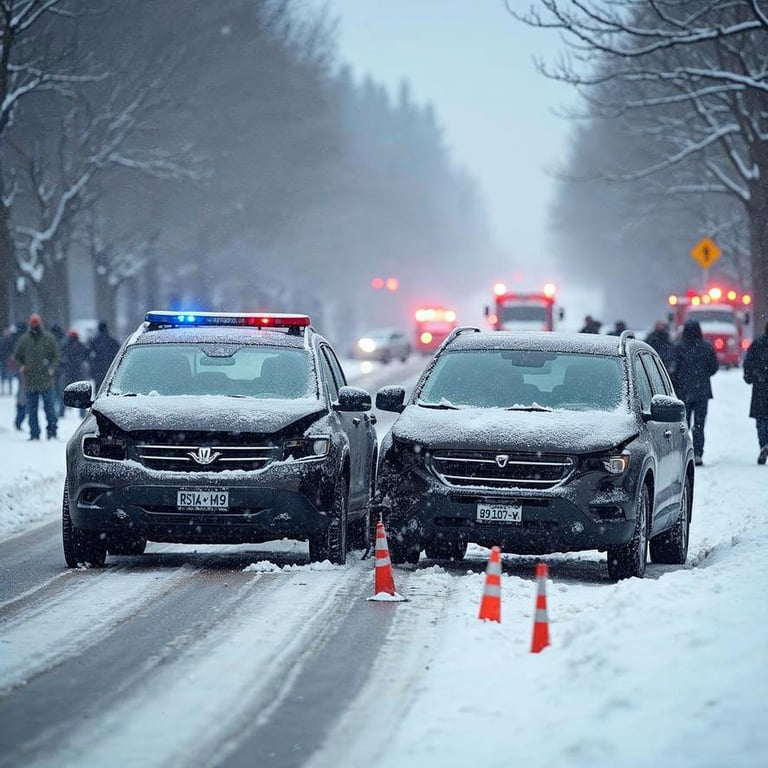
Unfortunately, based on your response, you may not qualify to file a claim. Most personal injury cases must be filed within two years of the accident, in accordance with the statute of limitations. Please consult with a licensed attorney to explore any possible exceptions or additional options.
Weather conditions play a significant role in road safety and can greatly increase the risk of car accidents. In Spokane, drivers often face challenging weather patterns including snow, ice, rain, and fog. Understanding how these conditions contribute to accidents and knowing what steps to take after a weather-related crash is essential for every driver.
Spokane experiences cold winters with frequent snow and ice on the roads. Snow reduces tire traction, while ice, especially black ice, can be almost invisible and extremely slippery, leading to loss of vehicle control.
Rain creates slick surfaces that increase stopping distances and reduce tire grip. Standing water can cause hydroplaning, where the vehicle tires lose contact with the road surface, making steering and braking difficult.
Fog lowers visibility, making it harder to see other vehicles, road signs, and traffic signals. This can lead to collisions due to delayed reactions or misjudgments of distance and speed.
Adverse weather conditions affect various aspects of driving, such as:
Knowing the proper steps to take after an accident can protect your safety and help with any insurance claims. Here are key actions to consider:
Check yourself and passengers for injuries. If it is safe to do so, move vehicles out of traffic to prevent further collisions. Turn on hazard lights and call emergency services if there are injuries or significant damage.
Gather necessary information such as the other driver’s contact and insurance details, take photos of the scene and damage, and note weather and road conditions. This documentation can be valuable when filing an insurance claim.
In Spokane, reporting the accident to the police is often required, especially if there is property damage or injuries. The police report serves as an official record of the incident.
Report the accident promptly to your insurer, providing all relevant information and documentation. This initiates the claims process and may help you receive compensation for damages and injuries.
While weather conditions are not always controllable, drivers can take steps to reduce risks:
For detailed steps on how to proceed with a claim after an accident, you can refer to the comprehensive guide on how to file your claim. Also, understanding the specific nuances and claims process for rear-end accidents can be helpful, which is covered in the understanding claims after a rear-end accident article.
Government and safety organizations provide critical information about safe driving in hazardous weather. For example, the National Highway Traffic Safety Administration offers extensive guidance on winter driving safety, available at NHTSA's Winter Driving Safety.
Weather-related car accidents in Spokane pose considerable dangers, but understanding the risks and proper response steps can improve driver safety and outcomes after a crash. Always prioritize cautious driving and be prepared to take appropriate actions if an accident occurs.
Unfortunately, based on your response, you may not qualify to file a claim. Most personal injury cases must be filed within two years of the accident, in accordance with the statute of limitations. Please consult with a licensed attorney to explore any possible exceptions or additional options.